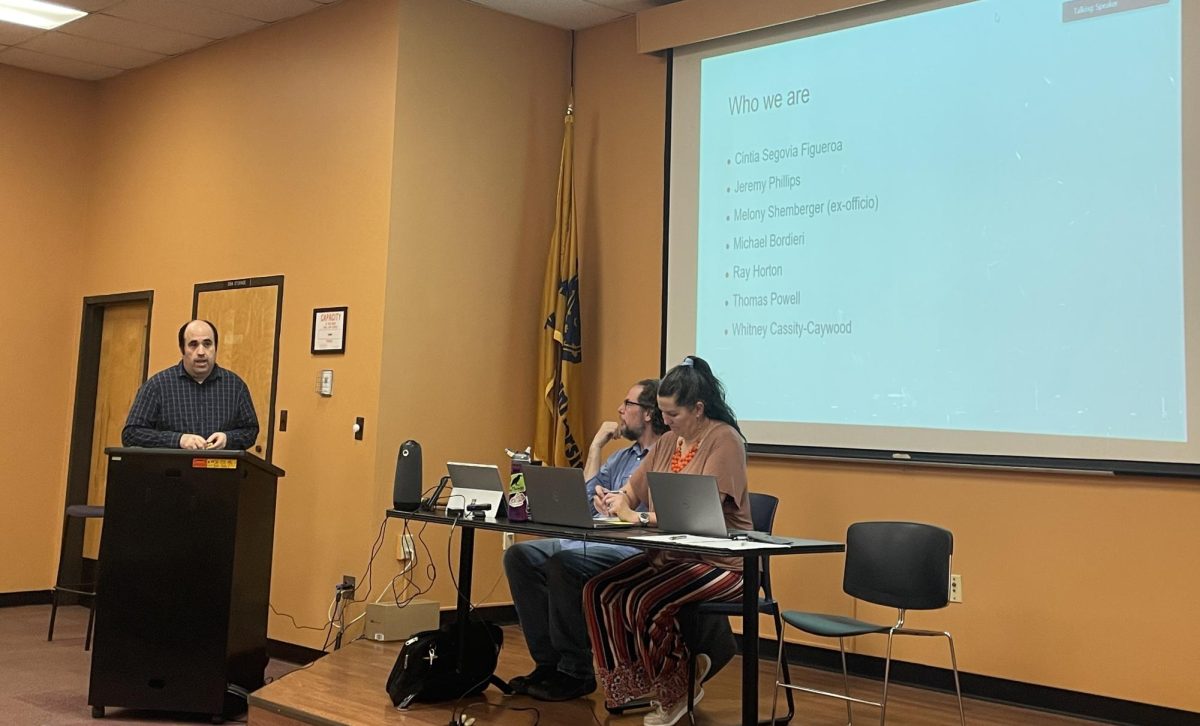The Faculty Senate held a second listening session on Tuesday, March 6 for University faculty to share their concerns surrounding recent legislation that, if passed, could impact higher education.
Michael Bordieri, chair of the governmental affairs committee, highlighted current legislation in the state, specifically House Bill 9, Senate Bill 6, House Bill 228 and House Bill 400.
Bordieri said while HB9, SB9 and HB228 are concerning, it’s important to note, just because a bill was introduced does not mean it will pass.
The General Assembly is currently on day 46. No new bills will be introduced and legislators have until April 15 pass bills through both the House and Senate.
Most faculty present, in person and on zoom, shared their concerns regarding HB9 and SB6. Both bills target diversity, equity and inclusion initiatives in higher education.
Zachary Garrett, assistant professor of English, in discussing SB6, asked in reading a portion of the bill if it allows for interpretation on the meaning of academic and how it’s defined.
In response to Garrett, Bordeiri said he isn’t sure how laws will be interpreted.
“One concern we have is to make sure that administration or legal counsel don’t interpret so strongly or broadly, that it restricts more than it needs to that is a concern,” Bordeiri said. “Sometimes bills can have a chilling effect or laws can have a chilling effect beyond the narrow X.”
If passed, SB6 and others passed, would go into effect in 90 days.
Eleanor Rivera, associate professor of history, asked about uploading syllabi and employee contracts.
“Are our contract dates going to change if syllabi have to be uploaded by the beginning of the semester,” Rivera asked. “I can’t do anything about the ideology but I am thinking- does this mean I have to write a syllabi again?
David Roach, Faculty Senate President, said a conversation with administration is in progress surrounding this issue.
“If this were to come into effect, having a conversation about what does compliance look like, in a way that minimizes disruption to faculty caseload workload, including work over the summer and also minimizes intrusion in their funds,” Roach said.
Diane Nititham, associate professor of sociology, said she is concerned about this bill and the impact it will have on programs like sociology.
“I’m wondering what has happened in other states- Can we learn from those here and are there ways to protect the faculty who are here? Who are teaching here and are already stressed out,” Nititham asked. “How do we support our colleagues? How do we support each other? Are there actual actionable things that we can do?”
Roach said he doesn’t know if there are strong mechanisms in place to support faculty.
“We got chairs, deans and the Title IX coordinator…I think that could be strengthened,” Roach said. “Again, my opinion, something that we could work on as a Senate and I hope we have subcommittees that work on these things.”
Faculty Senate will host a final listening session on Wednesday, March 27 at 3:30 p.m in the Curris Center Ohio room.



























































































